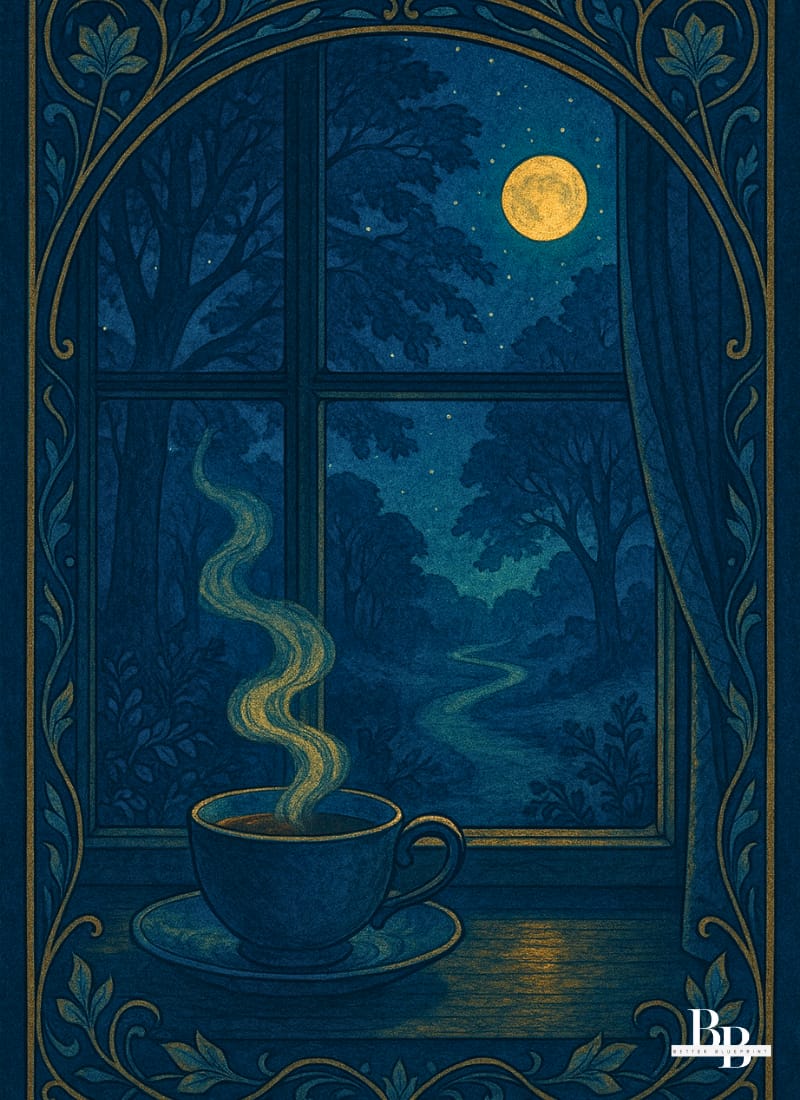- The Better Blueprint
- Posts
- The Better Blueprint
The Better Blueprint
No: 1506

The Word That Changed How I See My Body
This morning, I noticed a thin beam of light falling across the floor. It was soft and angled—like a whisper had made its way through the wall. Dust floated in it, slow and unhurried, like it had nowhere else to be.
It stopped me for a moment. Not dramatically. Just long enough to notice what I often miss.
And then, a word came to me. A word I’d come across months ago, tucked in the pages of a book on Tibetan thought:
Lii.
It’s their word for “body.”
But it doesn’t mean what we think it means.
Lii means something you leave behind.
Like luggage. Or a coat you wear while passing through a colder place.
It reminds them—and now, me—that we are only travelers, and this body is only a temporary shelter.
The first time I read that, it felt like someone had quietly slid a mirror in front of me. Not to judge, but to invite me to look again.
And since then, I’ve often wondered:
Why do we spend so much time redecorating our hotel rooms?
We upgrade. We polish. We rearrange.
We turn every corner of our life into a project that needs fixing.
As if permanence was guaranteed, or even promised.
Of course, there’s nothing wrong with beauty or comfort.
But when comfort becomes the whole story, we lose sight of something deeper.
There’s an old saying I once heard from a wandering teacher. It goes something like:
"You’ll eat. You’ll sleep. You’ll shit. That’s unavoidable.
Beyond that—most things are none of your business."
Crude, maybe. But strangely freeing.
Because the truth is—not everything needs improving.
Not every itch needs scratching. Not every room needs a lamp from Pinterest.
Sometimes, the greatest kindness we can offer ourselves is the reminder that we’re not here forever.
That this body, this life, this breath—it’s not a possession to hold.
It’s a gift to be lived in, gently.
And when we forget—when the noise becomes too loud, and the pressure to “be more” too tight—it only takes a little light, a little stillness, to bring us back.
To remind us:
This isn’t our home.
It’s a place to rest.
And the train will come, sooner or later.
So maybe we don’t need to repaint the walls today.
Maybe we can sit in this light.
And just be.
A Great Quote
“In some Native languages the term for plants translates to ‘those who take care of us.’
If plants are our teachers, perhaps they teach us to be generous, as well. They give us everything we need. In return, our responsibility is to pay attention, to listen for their voices, to ask permission before taking, and to give thanks. The Honorable Harvest asks us to give back for the gifts we receive, to share them, and to sustain the ones who sustain us. It’s an ethic of reciprocity that runs counter to the market economy, and yet it holds the promise of healing—not just for us, but for the world.”
— Robin Wall Kimmerer, Braiding Sweetgrass
Book Review: “Anam Cara” by John O'Donohue
What is an “Anam Cara”?
In Gaelic, anam cara means “soul friend.” It refers not just to a companion but to one with whom you share an unspoken understanding—a deep spiritual connection that goes beyond words. O'Donohue builds the book around this idea, inviting the reader into a world where friendship, solitude, love, and even death are not separate terrains but part of one continuous landscape of the soul.
The book is loosely structured, more like a series of lyrical essays than a linear narrative. Each chapter explores a facet of life: identity, belonging, work, aging, the body, and the invisible world. O'Donohue writes in a deeply reflective style—rich with metaphor, yet accessible. He quotes poetry, scripture, and Celtic myth, but never burdens the reader with doctrine. His tone is priestly, but not preachy; he teaches, but more often he blesses.
Key Themes
1. The Sacredness of the Ordinary
O’Donohue reminds us that everyday life—our mornings, our work, our conversations—is not separate from the divine. He invites a return to reverence, not through rituals alone but through the eyes with which we behold the world.
2. Solitude as a Source of Strength
Contrary to modern anxiety around aloneness, Anam Cara speaks of solitude as nourishment. In solitude, O'Donohue says, we return to ourselves—not as isolated beings, but as whole ones.
3. Death as a Homecoming
One of the most moving aspects of the book is its tender approach to mortality. Death, he suggests, is not an end, but a return. He reframes fear into familiarity, offering comfort without sentimentality.
Why It Matters Today
In a world increasingly loud and transactional, Anam Cara is a counter-offering. It doesn’t promise quick answers or ten-step plans. Instead, it speaks to the parts of us that crave meaning, slowness, and companionship—within and without. It encourages us to befriend our own souls again.
Who Should Read This
Seekers of spiritual clarity beyond dogma
Lovers of nature, poetry, and Celtic lore
Anyone navigating solitude, change, or loss
Those who enjoy authors like Mary Oliver, Henri Nouwen, or Pema Chödrön
Anam Cara is not a book to finish. It is a book to return to—on quiet mornings, before sleep, in times of doubt or transition. It asks us not to conquer life, but to touch it gently. And in that touch, perhaps, to come home to ourselves.
About : Welcome to our fortnightly journey—a space for reflection, growth, and quiet discovery. Each edition brings two deep dives into personal transformation, a handpicked quote to stir the soul and a review of a book that reshapes perspectives.